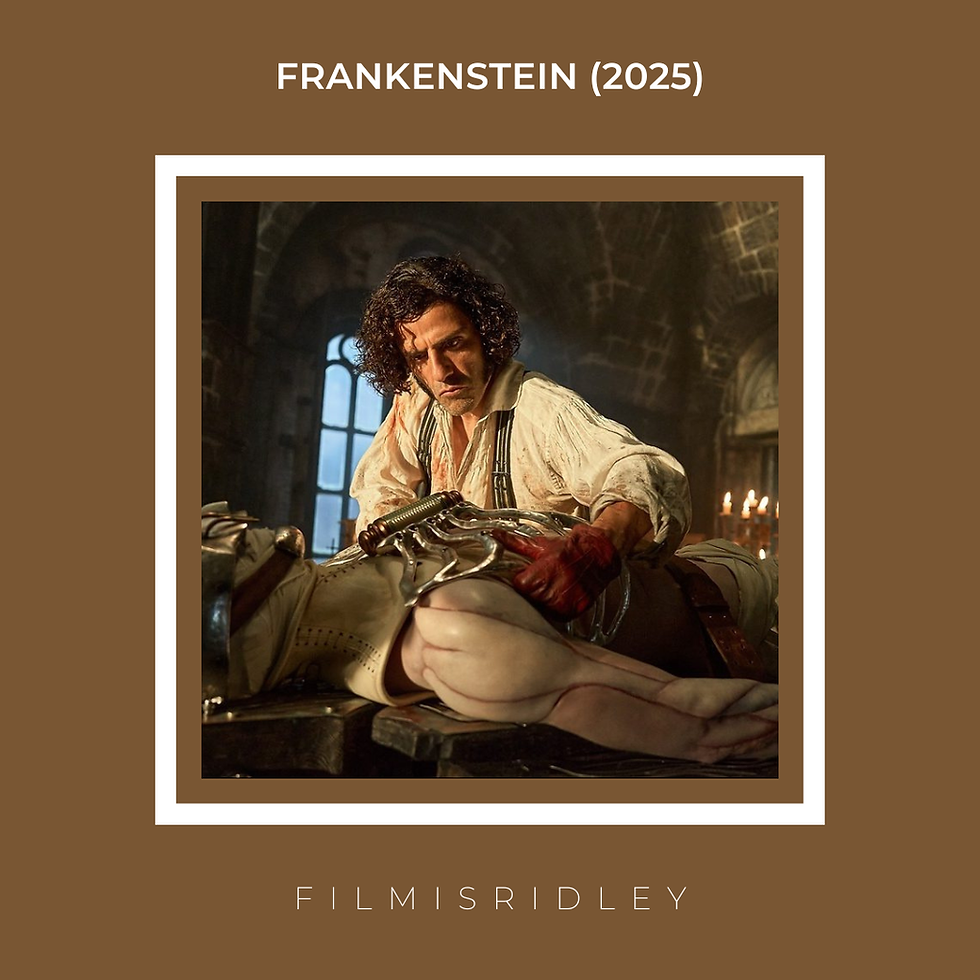Four Sided Triangle (1953) Dir: Terence Fisher
- Ridley Coote

- Nov 11, 2025
- 3 min read
Instagram post:

As readers of my reviews this year will know, I've been gradually making my way through some of the many classic films in the Hammer Productions filmography. I've seen some true classic horrors, and some more out there ones, and this seemed to be one of the latter. It was, much like many of the others I'd seen, directed by the innovative Terence Fisher, and very much seemed to emulate some of the other key facets of Hammer horror; the science fiction elements, the twisted irony of one's own creations backfiring, and some form of dramatic emotional plight.
This film was nowhere near as aesthetically pleasing or impressive as the likes of 'The Curse Of Frankenstein' or 'Dracula', though I did enjoy the practically made contraption from which this film's in-story troubles came. I love seeing the practical effects in classic films, it is almost always so creative, and there is definitely something to be said about the props, sets, and such being real - they feel so much more tangible and believable, no doubt for the actors as much as the audience on the other side of the screen.
The plot was pretty crazy, all things considered. Aspects of it were very creepy, mainly due to the misogynistic depiction of women as objects, or women not knowing what's best for them. It did, in a strange way, work in this film's favour, in horror terms, at least, because it utilised a few genuinely disturbing and uncomfortable fantasies that some men legitimately have, even today, and created a pretty concerning image of what the kind of technology it featured could be used for, if in the wrong hands.
I kind of wish they had left the ending more ambiguous - I think it would have worked better. It almost felt like the kind of ending that was decided by a studio who wanted a more hopeful ending. Regardless, the story up that point had been fairly good, if a little ponderous with its pacing. The narration was useful for exposition and furthering the narrative, but also continously stalled the momentum, which didn't help matters.
Barbara Payton's double turn was well worth noting, albeit there was almost no difference between her two characters. I really liked how she showed one of her character's emotional anguish towards the end of the film, it made the dramatic climactic scene hit home a lot more for the audience. Stephen Murray's significant role in the film was certainly warranted, with some of his acting in the second act in particular being very strong. He did occasionally exhibit some slightly odd facial expressions, but the vast majority of his work was solid.
John Van Eyssen and James Hayter appeared far less frequently than their two aforementioned co-stars, but both provided professional and compelling performances. It was a little amusing hearing Hayter's character narrate, if only because of how silly some of his dialogue was, from a logic perspective. With that said, I enjoyed both men's acting a fair degree, regardless of any haphazard lines in the script.
Overall, although this definitely wasn't Fisher's best work, but it sure had some entertaining moments. The character dynamics, while not as fully explored as they could have been, were very interesting, and created a compelling and universally recognisable sense of conflict within the story. I do prefer some of the more acclaimed and notable films in both Hammer and Fisher's filmographies, but this certainly wasn't a bad use of an evening, in any case.






Comments